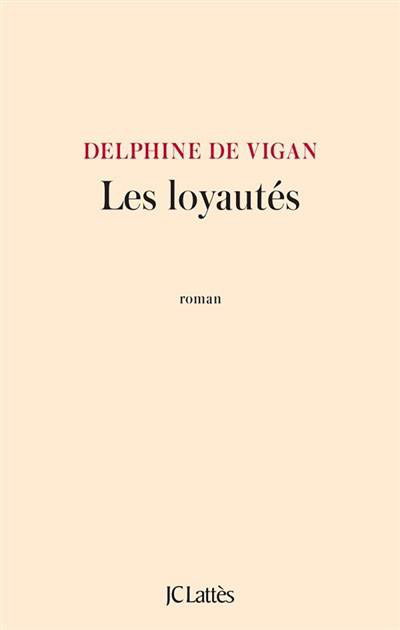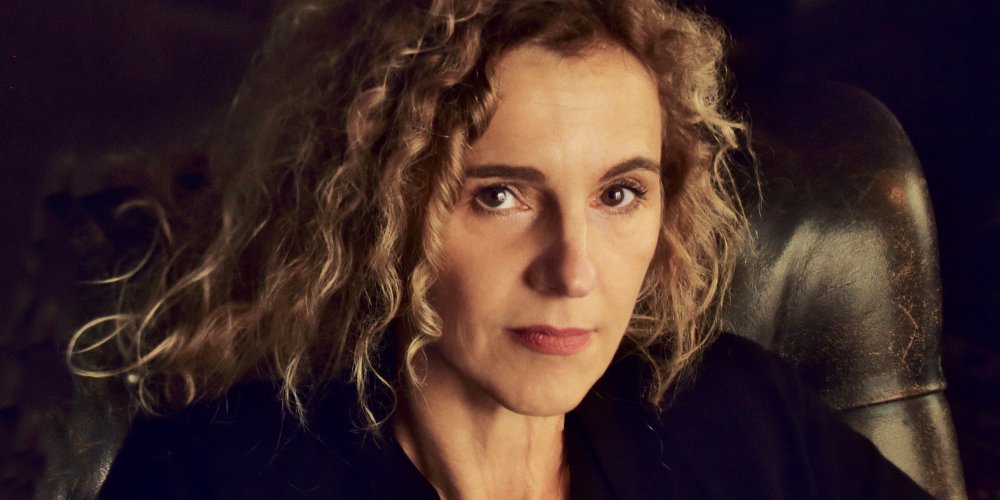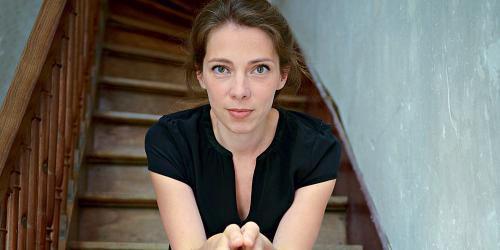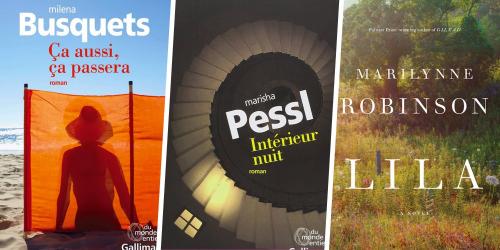For twenty years, she built a work that resonates with the questions of her readers, many, hard-working and sometimes fanatical. It suffices to sit at one of his signatures in a literary salon, where the crowd press questions and recommendations as if she were a holy miracle worker. For to write, for Delphine de Vigan, is above all to question the world around her, to explore the invisible subterranean that governs our human relationships, with an empathy that excludes any egotistical relation to writing.
His books sound true because they attack those knots of stone that overwhelm and petrify us, the wounded teenage in No and me, the loneliness of the big cities in The underground hours, the psychic fragility in "Nothing s' opposes to the night ", the psychological hold in" From a true story ". Each one can, at one time or another, find in a novel by Delphine de Vigan echoes of his own existence. "Loyalty" *, his new book speaks of abuse that does not say his name, that inflicted on children delivered to themselves when separated parents do not provide the minimum subsistence. But also of those couples who do not know each other, or so badly. The collapse that lurks when social status is wiped out by unemployment. With, in watermark, the question of loyalty or not, compared to what we are.
Marie Claire: Your new novel is called Loyalty. Why?
Delphine de Vigan: It's a word that I like and that is important to me. The book is probably born of this question that I often ask myself: "Am I loyal, disloyal? Do the actions that I consider fair are loyal to this or that person? In life, it is important to me to try to be one. The necessity of loyalty carries me, builds me.

It is a subject little treated by the writers ...
Oh? I do not know. Yet loyalties are at the center of our relationships with others. For me, the idea of the link - and sometimes the debt, vis-à-vis his family, his clan, his social background - is central. I am a daughter of divorced parents, which in itself is very commonplace. But I believe that all children of separated parents have a special relationship to loyalty. Because very early, one is concerned not to betray, not to say too much, to protect one or the other parent of some news, to be fair. It can become a straitjacket, an obstacle. In adulthood, I often noticed that the question of loyalty sometimes occupied me absurdly.
We often come back to childhood with you, since the revelation of yours, described in "Nothing is opposed to the night" ...
Yes, that's right, and I had already talked about childhood before this book. In my writing, there is something essential that comes from there. I was a child and a hypersensitive teenager. This has long been a handicap and it is probably the main difficulty I encountered to enter adulthood, I think especially the time when I was anorexic. Today, I tamed my own
sensitivity. It is sometimes cumbersome, but it is especially a great asset to perceive others, the world, the time.
Theo, the abandoned child, are you at the same age?
No ... it's never so simple ... I would not say he's helpless, by the way. He is hostage to a conflict that silences him. And it is a situation that I lived, like many children, the pact of silence ... Do not betray his or her parents. Do not call for help. Shut up thinking that it will be better tomorrow.
This is related to your childhood more than complicated ...
It is not so complicated, actually. It is even rather banal. I support an association called Clubhouse France, which helps the reintegration of people with mental disorders (depression, bipolarity, schizophrenia), it affects nearly two million people in France.
How do you live all that has happened to you since Nothing is opposed to the night?
Normally. But it's true that it's a book that marked a turning point in my life. He sort of redistributed the cards. It profoundly changed my relationships with some members of my family, revealed the flaws, the violence, but also supports.
What flaws? What violence?
I'd rather not talk about it. Then came the success of my next book, Based on a true story. I am perfectly aware that it is an unexpected gift. Few writers are lucky enough to live off their work, without the financial pressure, without having to publish once a year.
Why are you talking about luck? You have worked hard to be published and recognized.
Like all writers. I worked in the same company for eleven years, I was fired. I had decided to give myself a year to write a book in the light of day, which I had never done before, because I wrote in the evening or very early in the morning, before going to work. I did not have the project to live writing, for me it was not even conceivable. All this has only grown. There is not a day going on without me noticing that everything that happens to me is completely crazy.
But this sudden celebrity clutters you?
Not at all. Today, the celebrity of a writer is very relative compared to that of a star of the reality show! And that's good, by the way. I live quite normally and I do not aspire to be known.
How do you rate the new sexual revelations about Roman Polanski, who adapted your latest novel, "From a true story"?
I am absolutely not in the right place to judge the bottom of this story. Of course, I find it very positive that since the Harvey Weinstein affair, women's voices are free on such important issues. This will undoubtedly move the lines. If the word of women is manifested in this way, it proves that until now it has not been able to express itself elsewhere. There will be a before and after. The problem is that all this unpacking lacks discernment and is sometimes with a lot of approximations and violence. I am not very comfortable with this phenomenon of amplification on social networks that has everything from the anonymous pack.
The distributors have put your name in huge, to erase the appearance Polanski. How do you take it?
It was disproportionate to announce: "The bestseller finally adapted", as if the whole world was waiting for this adaptation ... But well, the context of the release of the film made things complicated.
Basically, why are you writing?
To try to understand why I write. Writing is my reason for living. A way of looking at the world that has radically transformed the way I move about it. With the idea that everything is potentially novel, everything is romantic. I have felt since childhood the desire to put words, to name things to keep them at a safe distance.
At a good distance?
Yes, to understand and understand situations. My hypersensitivity, probably borderline pathological, has long been uncomfortable, paralyzing. Writing comes from the need to name things so that they do not penetrate under the skin. It gives meaning to my way of being.
Looking back, do you think you would have gone down without writing?
No, I do not think so. But I would have been different. The words were, from the age of 12, a way to elucidate things that were happening around me, and to protect myself from it. Writing helped me build myself.
(*) Ed. JC Lattès.


